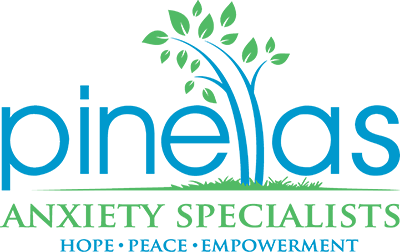
Grief and Loss Counseling
Healing After Loss
We understand that coping with grief and loss is a profoundly personal journey. The pain of losing someone or something you love can feel overwhelming, leaving a void that seems impossible to fill. Our dedicated team of compassionate and experienced grief counselors are here to guide you through each step of your healing process, offering a safe space where you can express your feelings and learn to manage your grief in a healthy way.
Grief can show up in many different ways, but often includes aspects such as:
Most insurances accepted! Including Medicare and most Medicare Advantage plans!
Trouble sleeping
Ruminating on the past
Feeling guilty about what could have been done differently
Isolating and feeling that nobody else can possibly understand your pain
Feelings of anger or that life is unfair
While we can never bring back your loved one, the good news is that it’s possible to heal and move forward in a way that honors their memory. We never want you to feel like you need to leave them behind, because they will always be part of your journey.
Here’s what you can expect to see in therapy for grief and loss.
Talking About Your Feelings
One of the main parts of grief counseling is talking. Your counselor will encourage you to express how you feel about the loss. This might include talking about the person who died, or how your life has changed since the loss. It’s a safe space where you can say anything that’s on your mind.
Understanding Your Grief
Grief can make you feel a lot of different emotions like sadness, anger, confusion, or even relief. These feelings can be scary and confusing. Your therapist helps you understand that these feelings are normal. You’ll see how everyone grieves in their own way and at their own pace, and how you can make progress in healing.
Learning How to Cope
The counselor will teach you ways to handle your feelings. This might include things like writing in a journal, creating art, talking to friends or family, or doing activities that you enjoy or find relaxing. These activities help you express your feelings in a healthy way and start to feel a little better over time.
Building Support
Sometimes, your counselor might suggest you join a group with other people who are grieving. This lets you see that you’re not alone and allows you to share your feelings with others who understand what you’re going through. However, even if you choose not to join a grief group, your therapist will work with you to identify aspects of social support within your network. It’s so important to reconnect with others to realize you aren’t alone.
Gradually Feeling Better
As you continue with counseling, most people start to notice that they feel a bit better after sharing their experience. It doesn’t mean you no longer miss the person you lost, but the pain becomes a bit easier to handle. You’ll learn to carry the memory of your loved one in a way that feels more manageable.
Schedule your free consultation call today to learn more about how grief and loss counseling can help you process your feelings and re-engage with life.
How do you help me reach my goals?
I utilize my training in counseling to provide exercises that will help guide you through the healing process. We'll help you identify how you’re feeling and finding healthy ways to process and cope with those challenging emotions. We’ll also help identify aspects of life that you want to reengage with.
Every session is individualized to your needs, because nobody benefits from a cookie cutter approach to therapy. We will focus on the specific strategies that will best apply to your situation. And when something doesn't work, we toss it out and try something new.
This sounds like too much work
When you're overwhelmed, stressed, and anxious, it makes sense that you'd be hesitant to add one more thing (therapy) to your plate.
What OUR patients tend to find is that our work together helps them begin to feel that there is hope again for their life. That initial burst of hope is so helpful in buying into the process and doing the hard work involved in moving through grief and loss.
Therapy is an investment in your well-being, and much like exercise it takes a bit of effort to see the best results.

